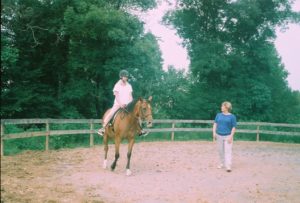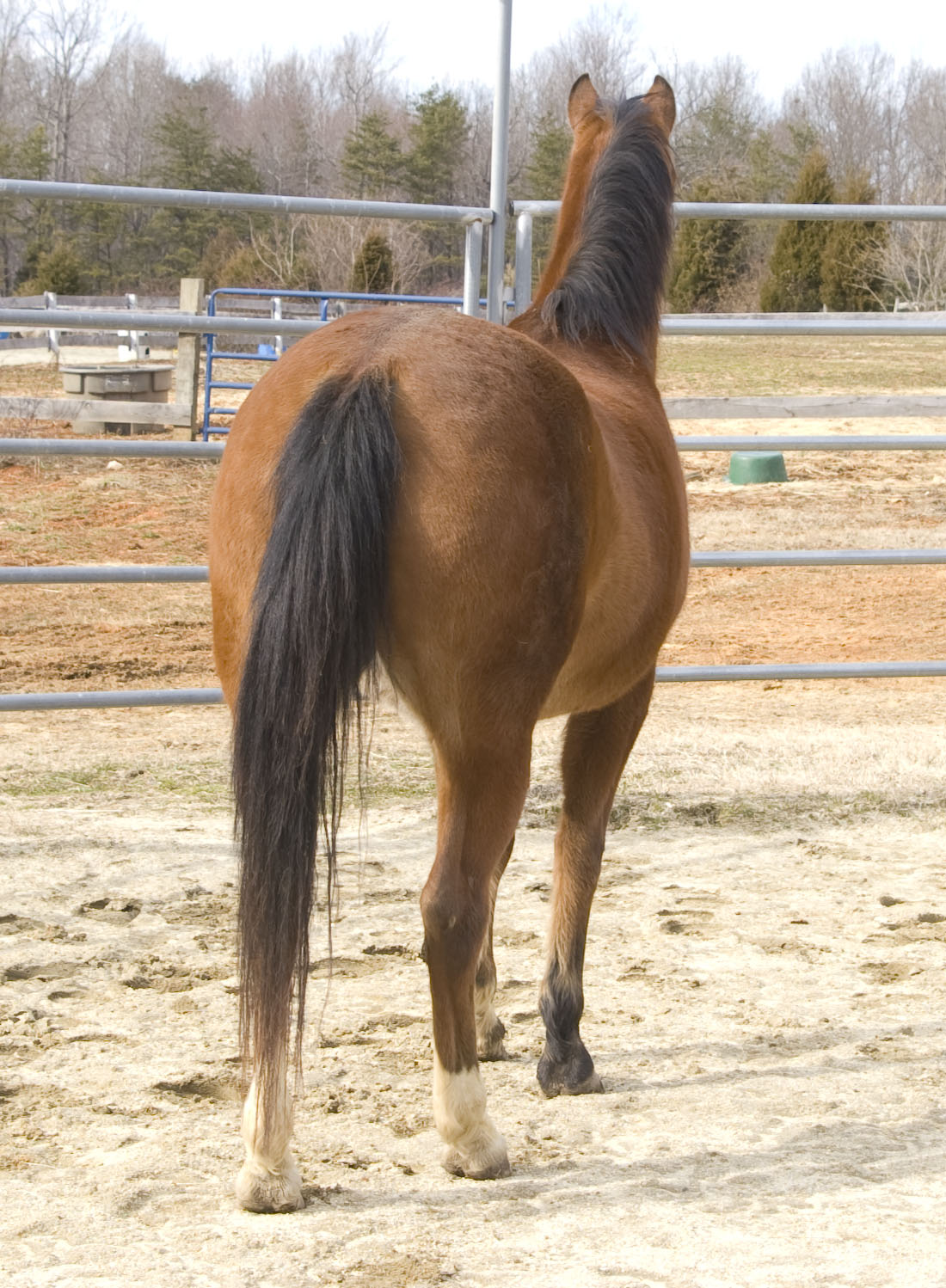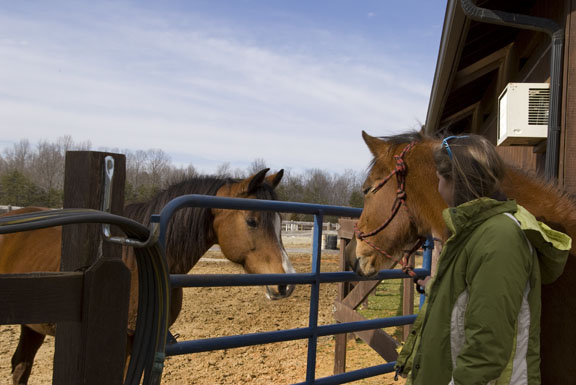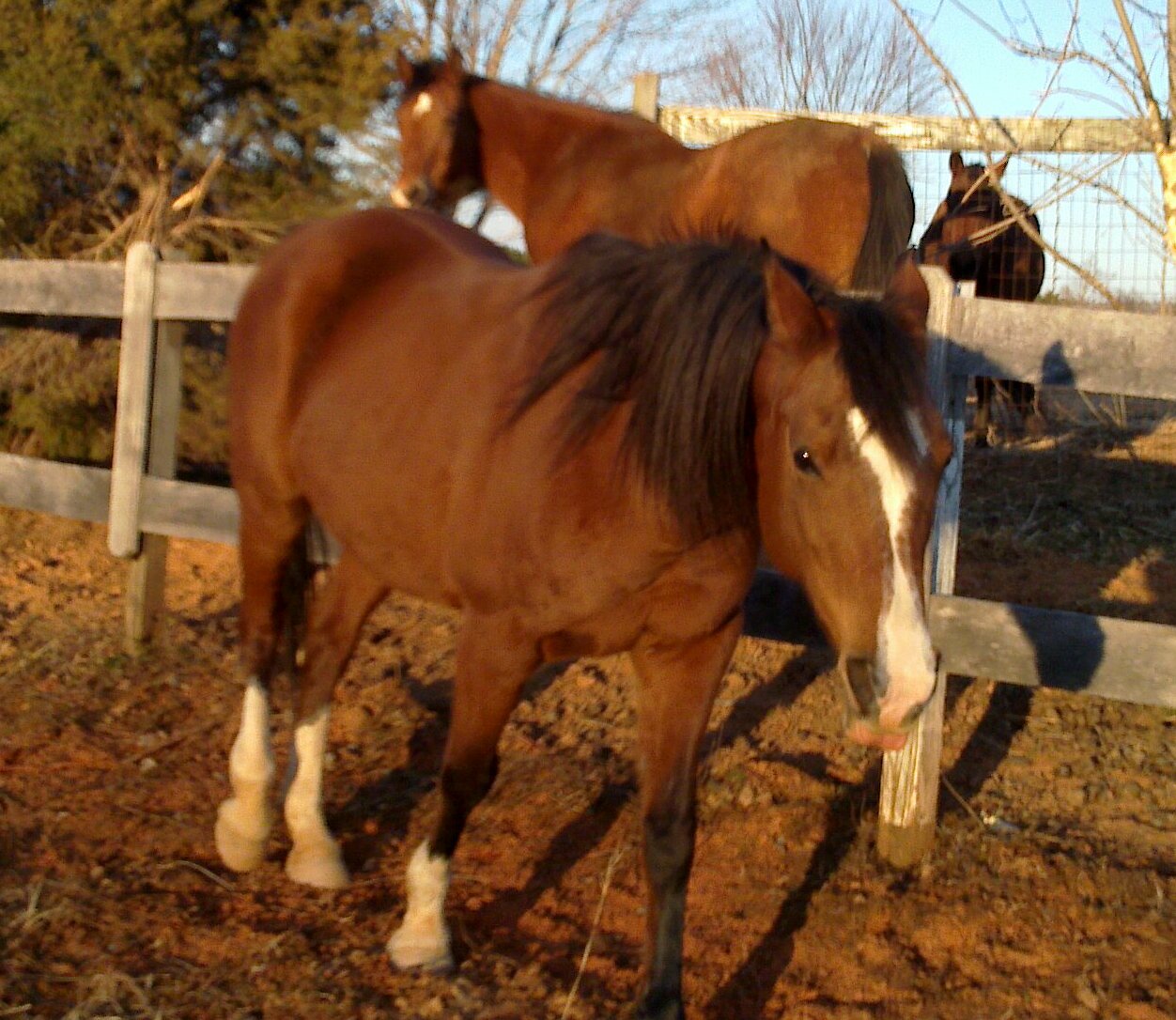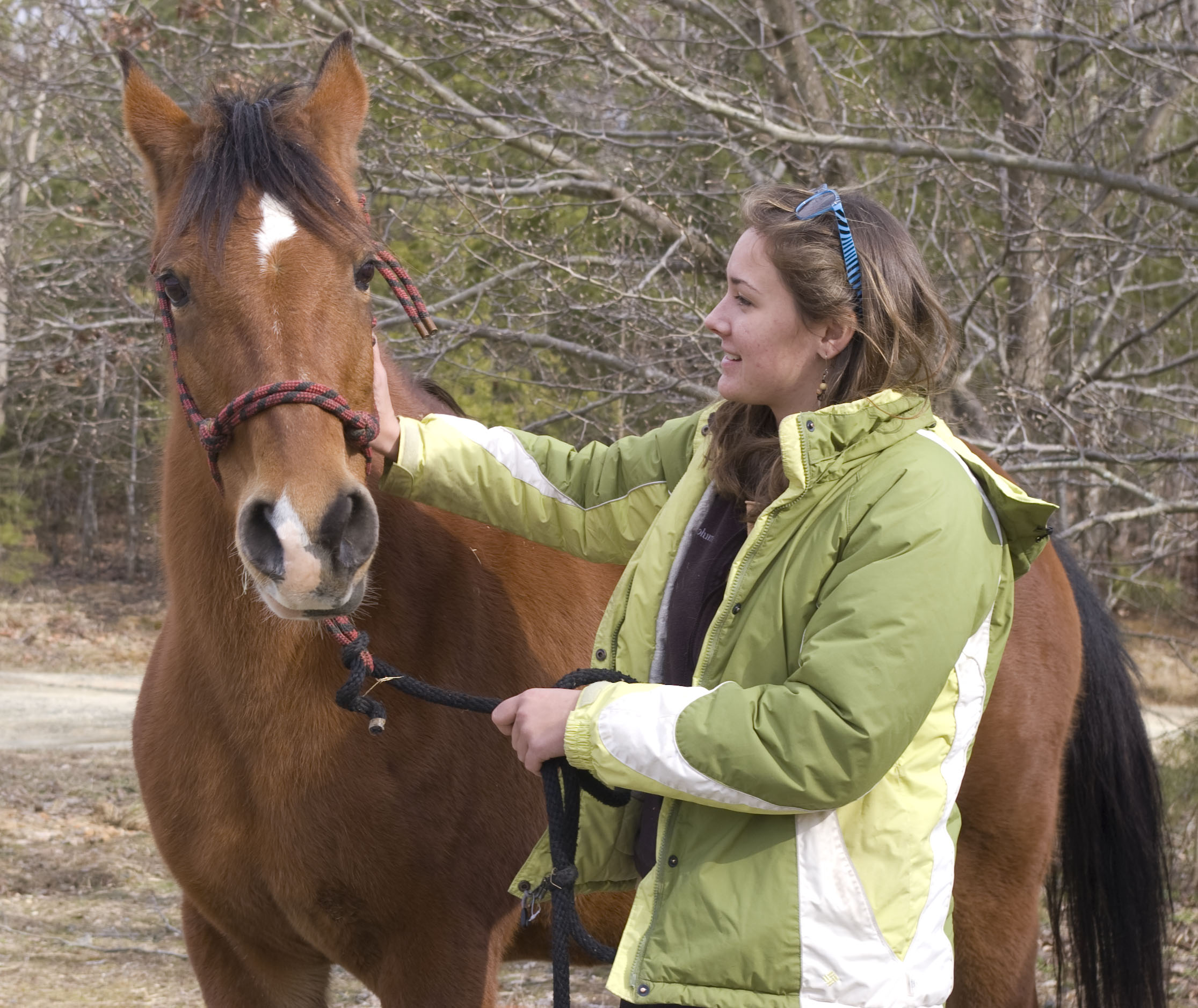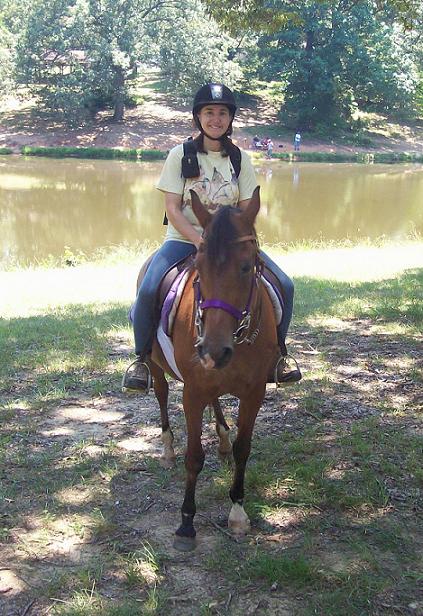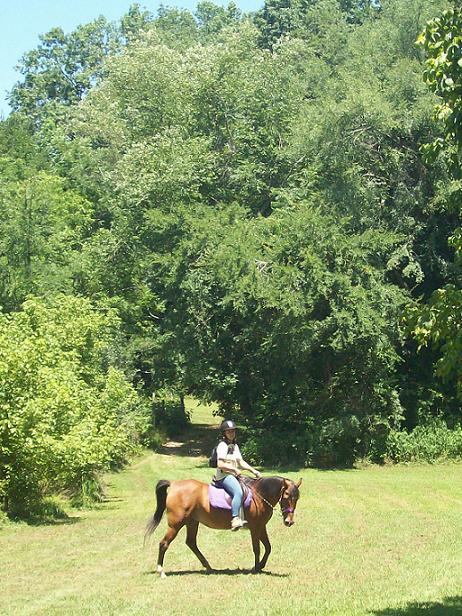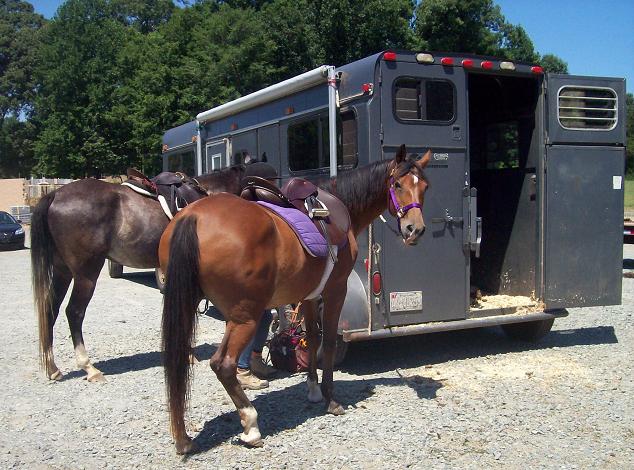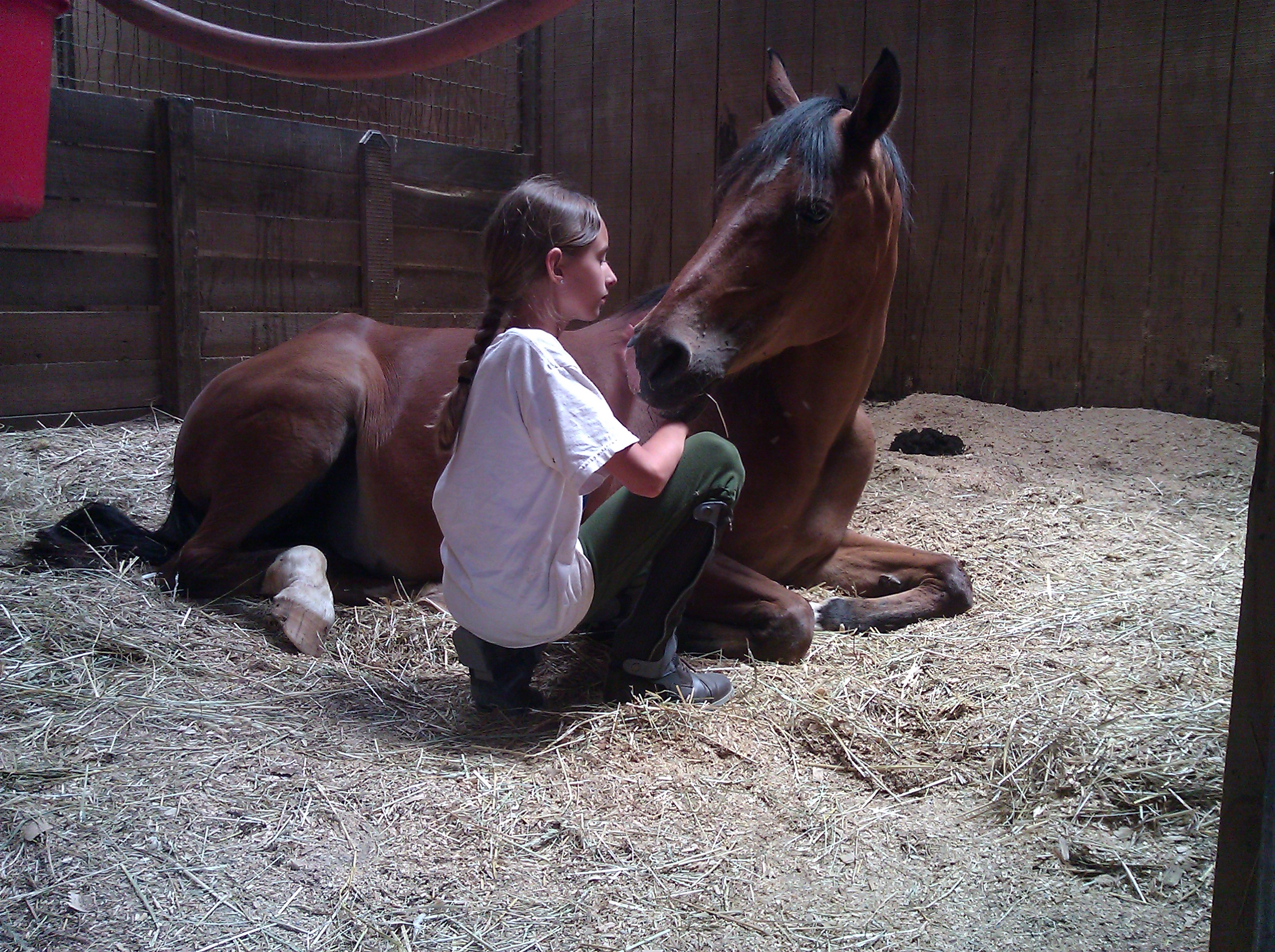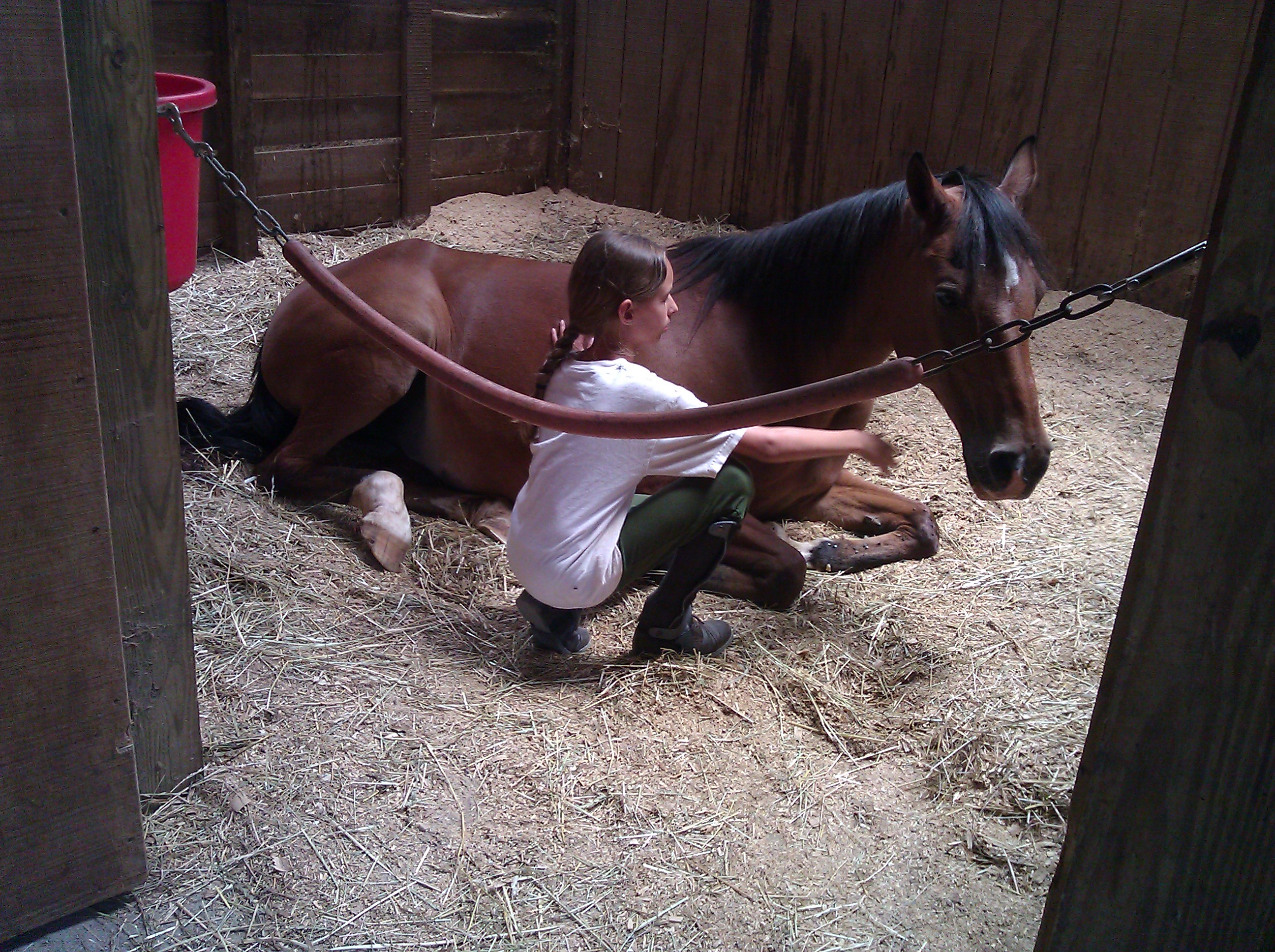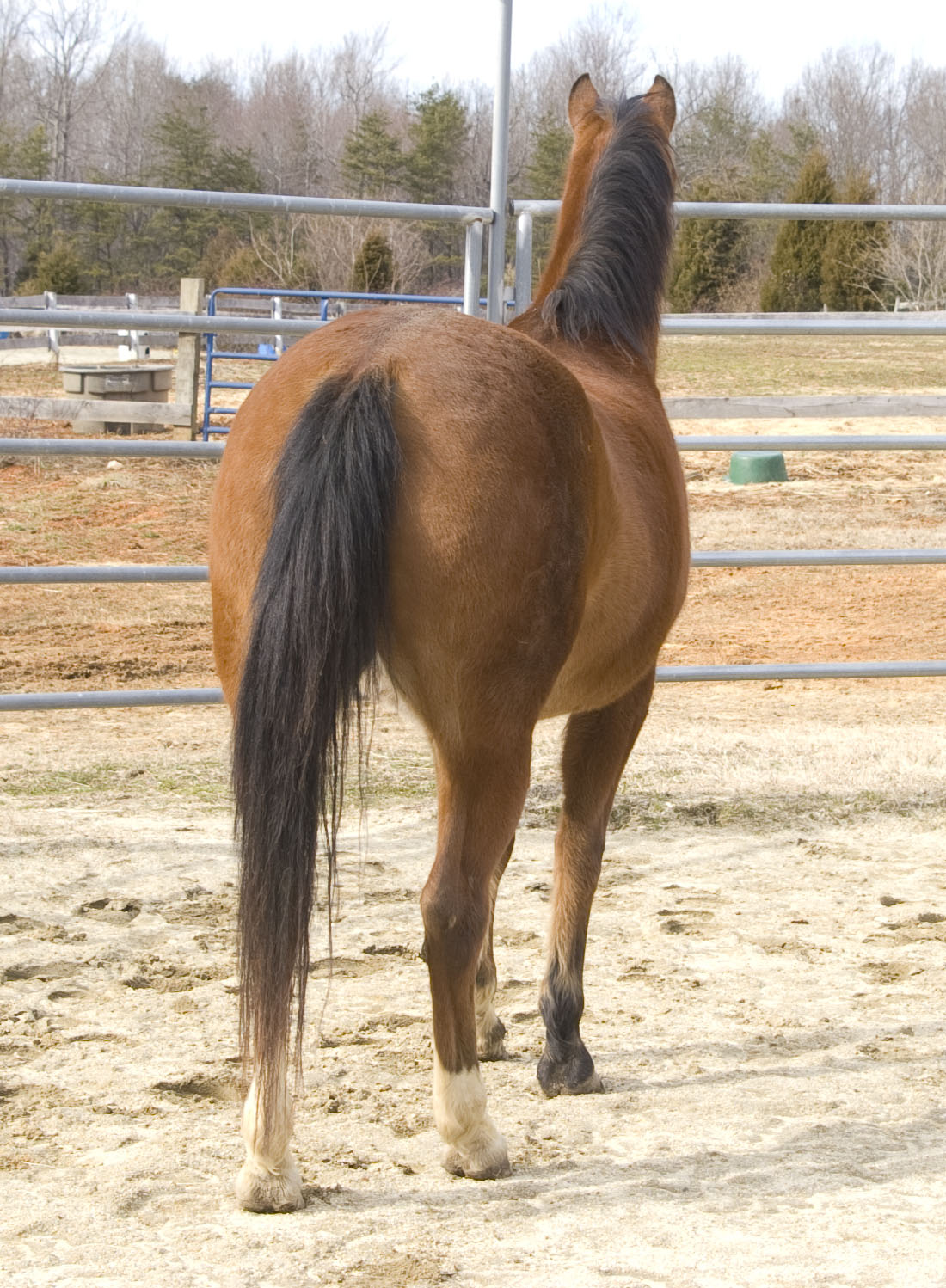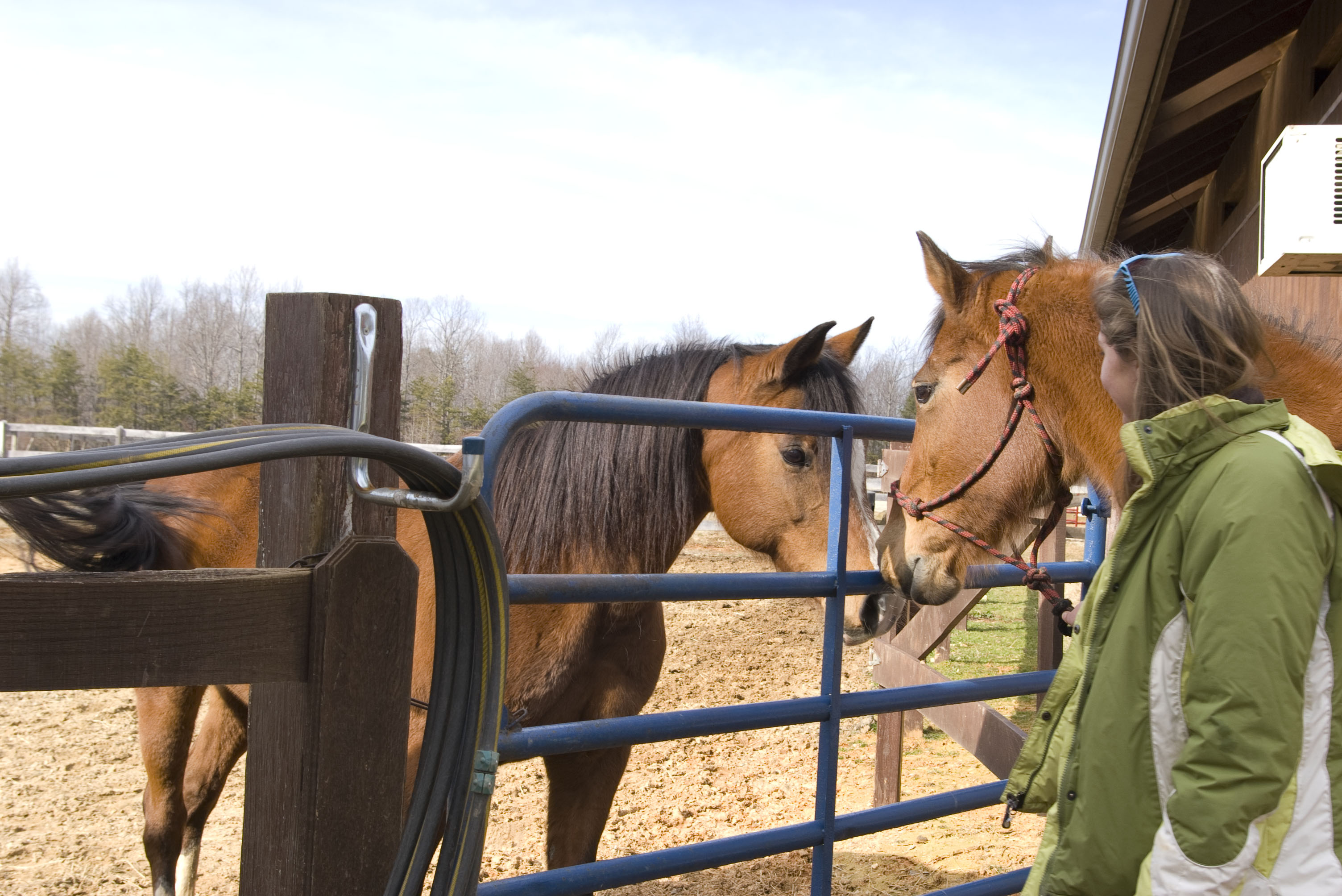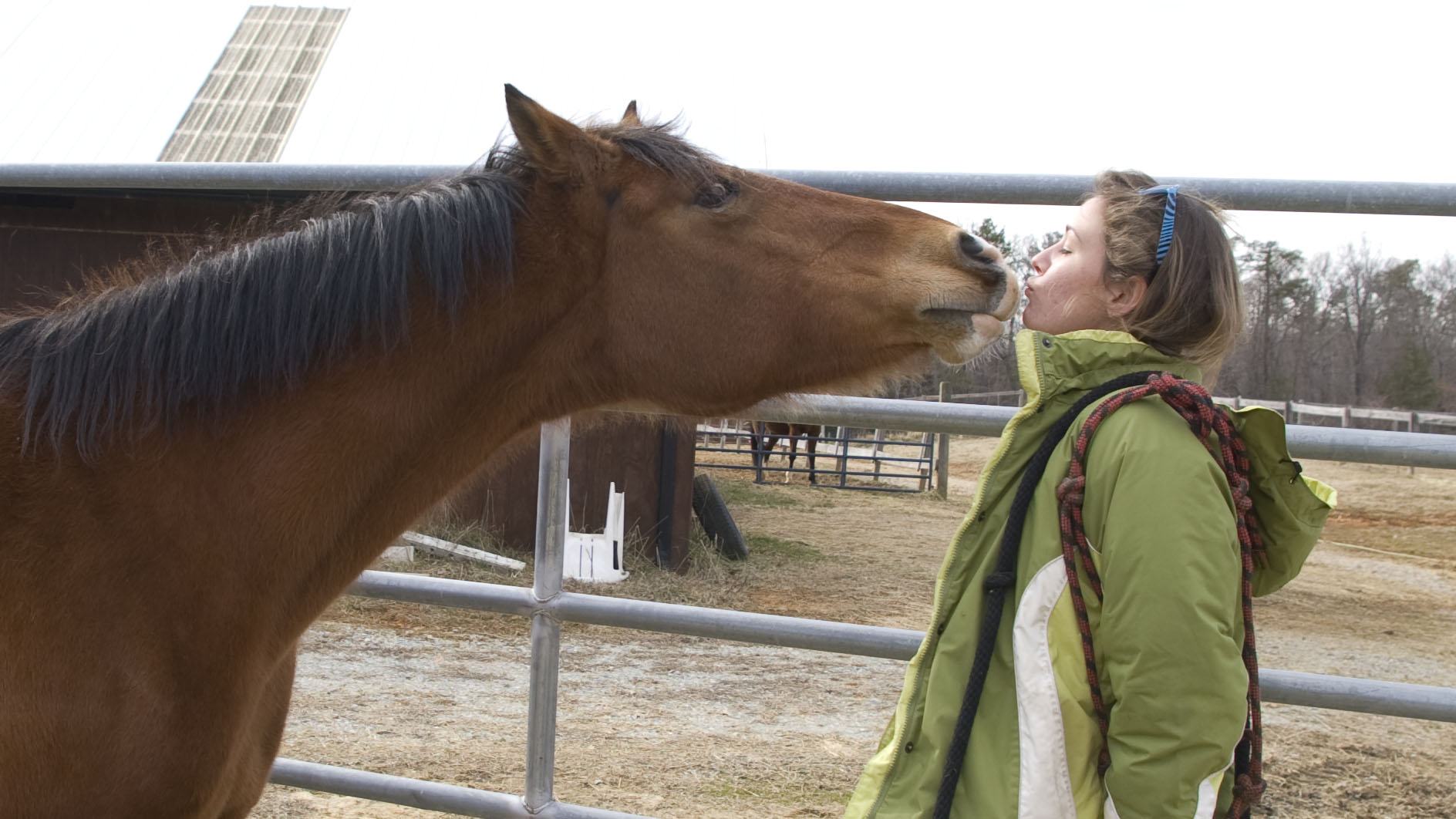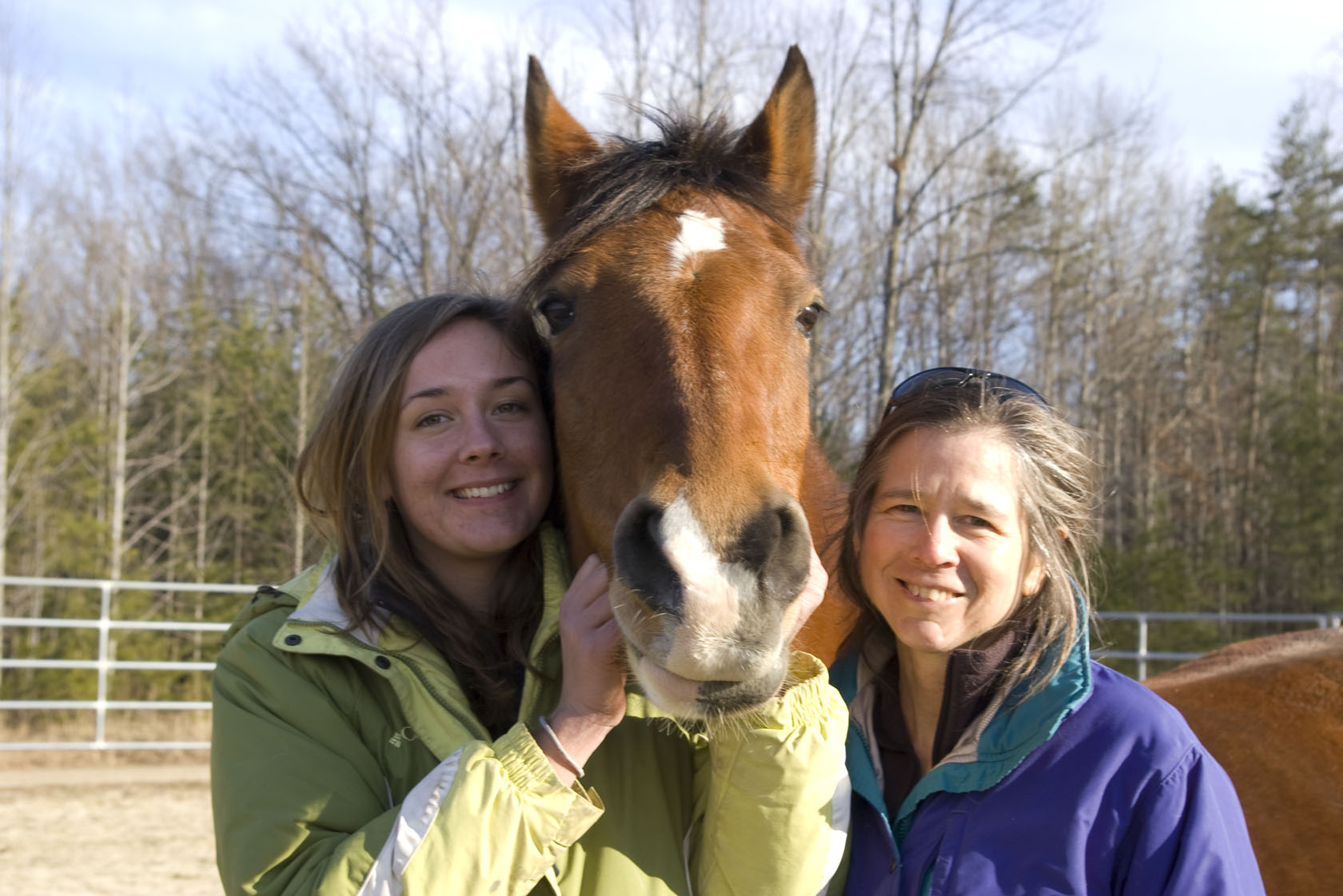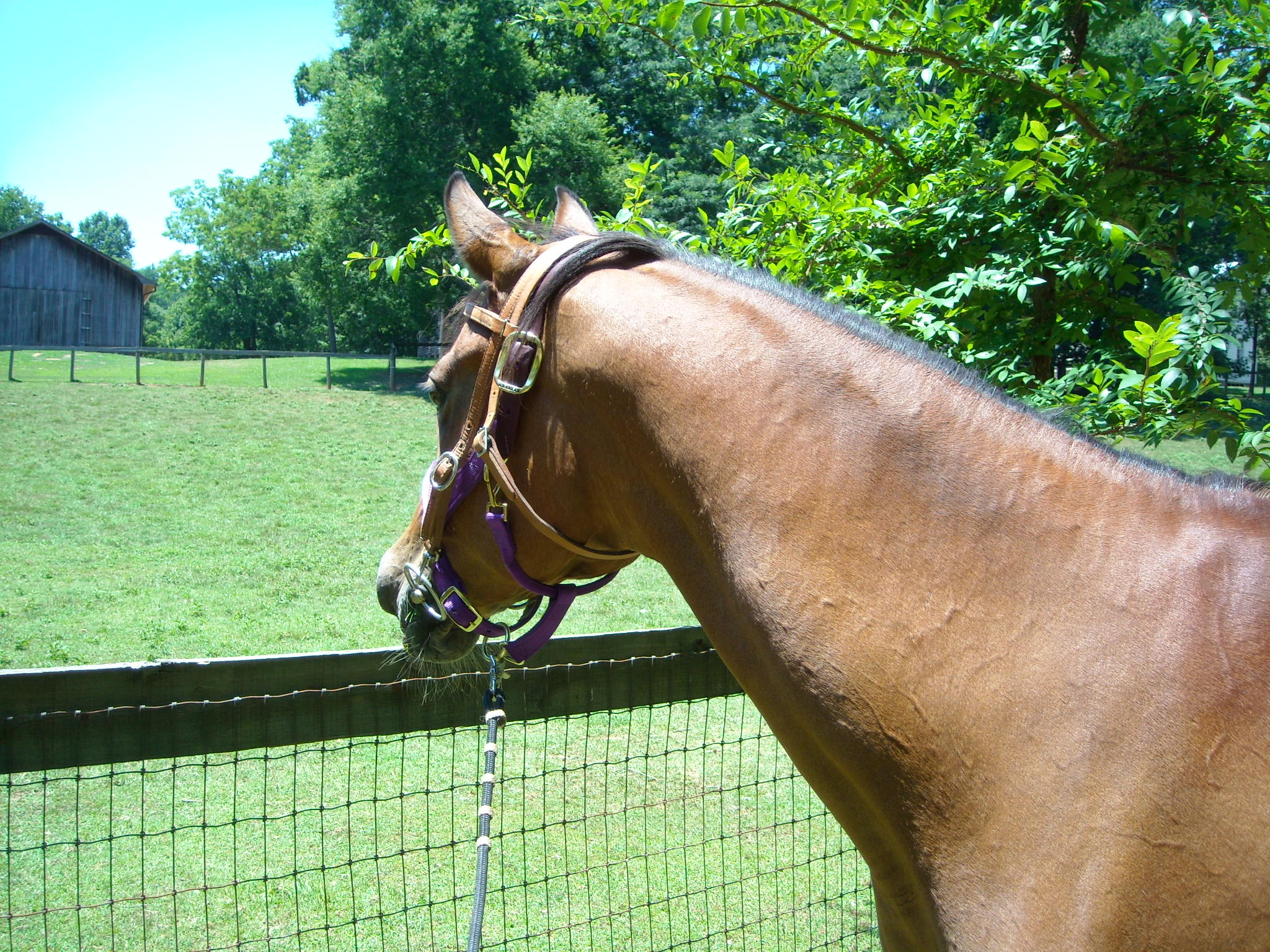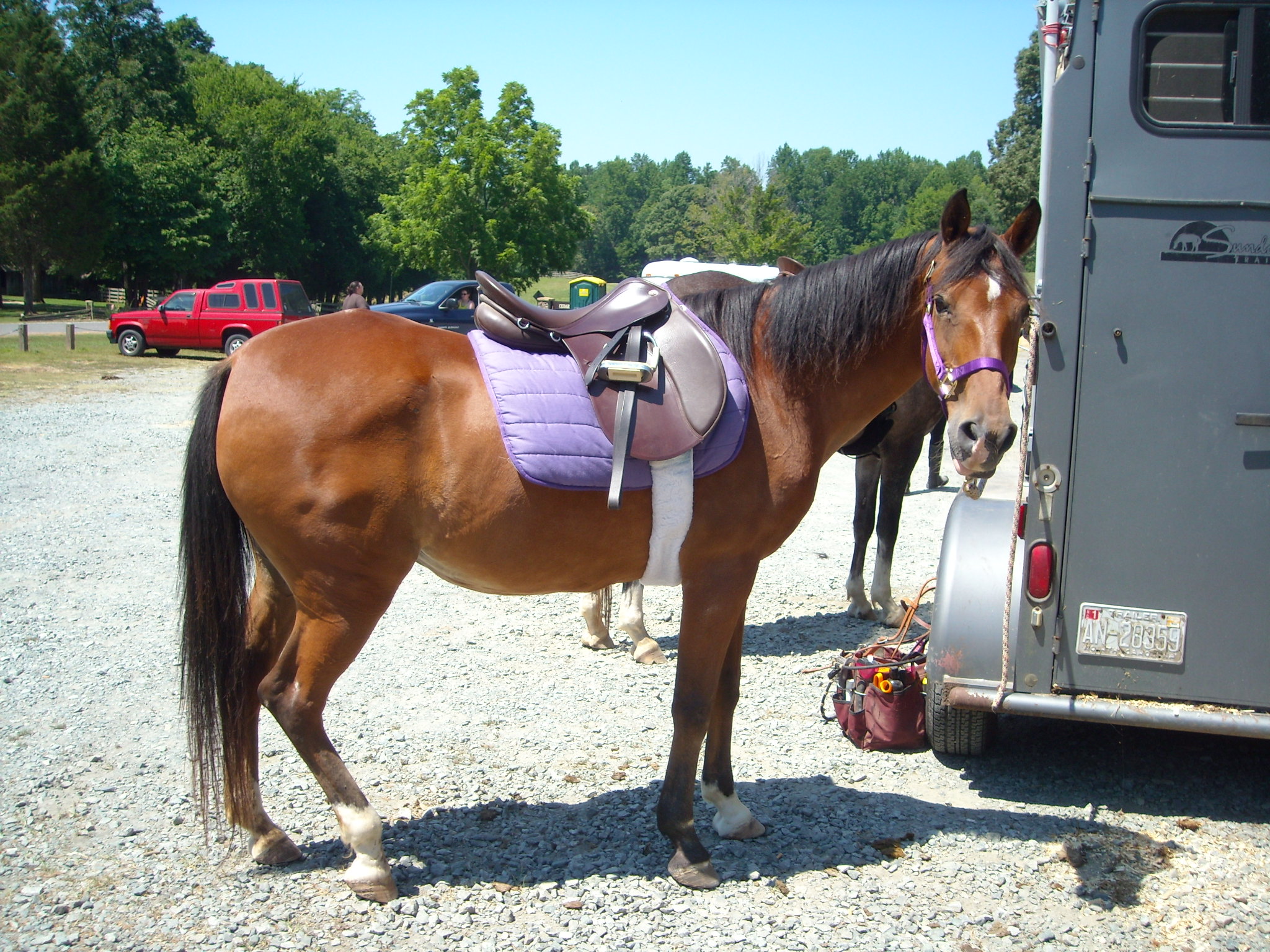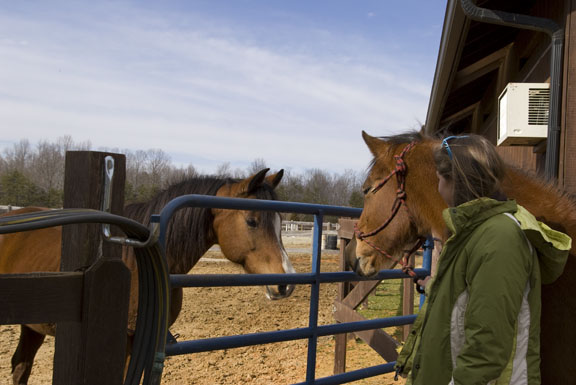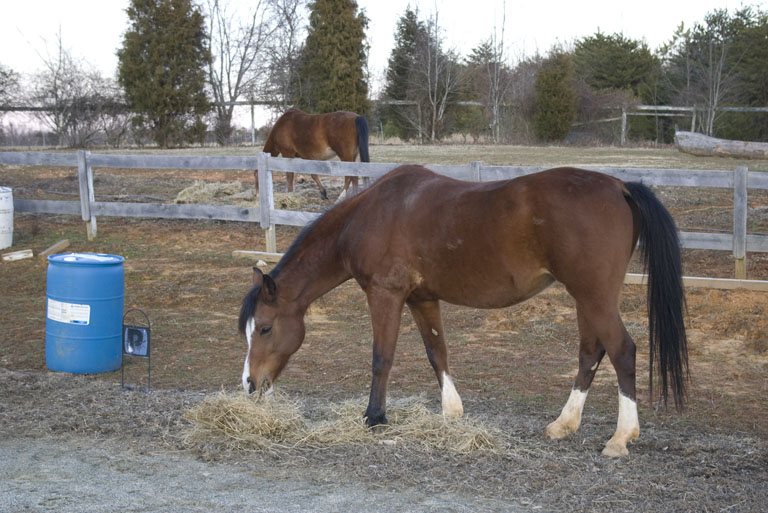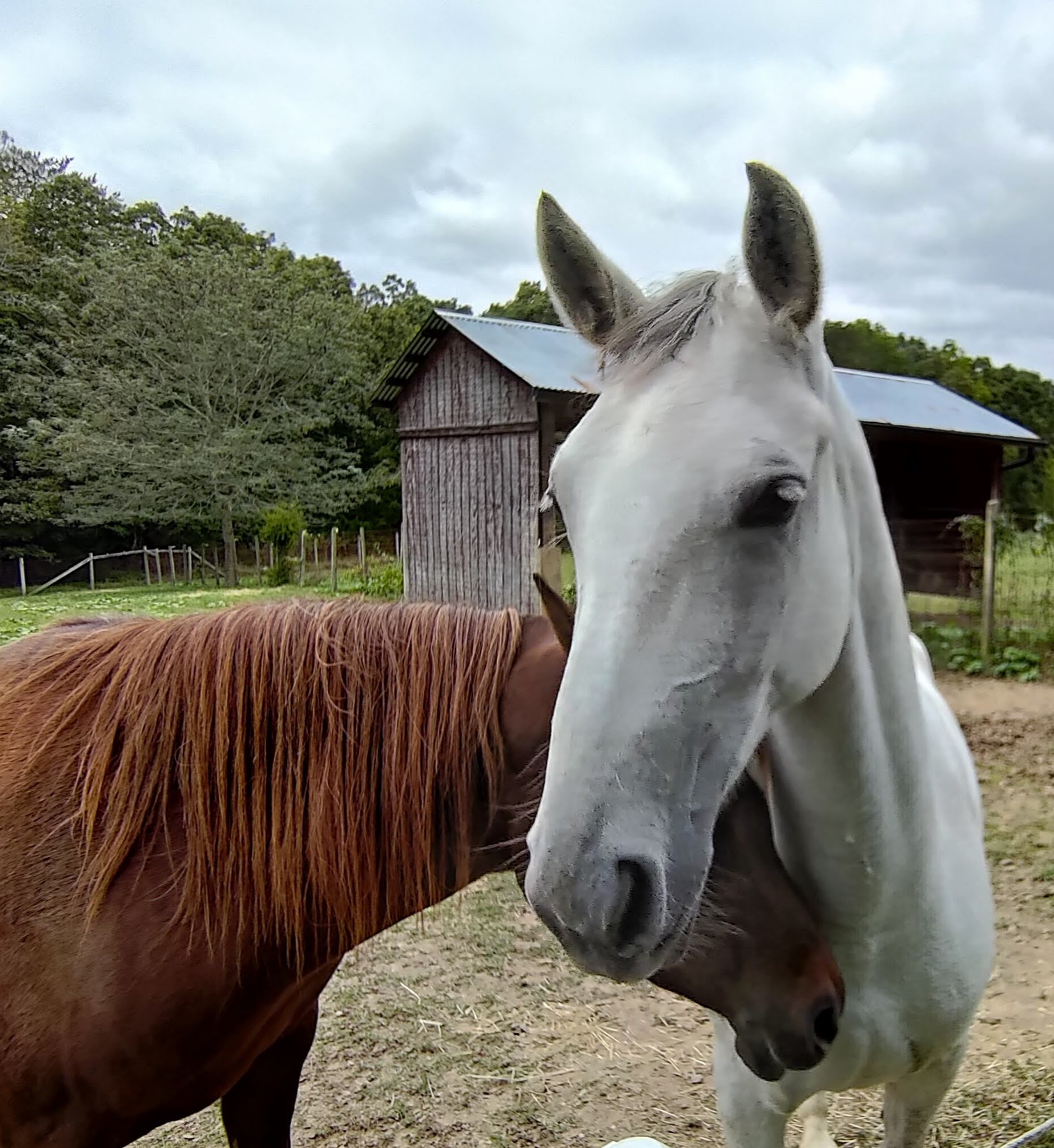The barn where I board is full of wise old eyes: half of the horses are over 20. My old girl, Prize, is 28 and still teaches people (myself included) about riding and jumping. She’s a bright bay Arabian mare with three white socks, a snip, and a blaze. She’s not typey for an Arabian (most people think she’s part Quarter Horse), but she is fearless and enthusiastic. The riding instructor at the barn–who previously was never a fan of Arabians–cherishes Prize as one of the best horses on the farm.
For the first nine years of her life, she was mine: a $2 mare my family won in a raffle and was immediately claimed by me. She was the second horse I ever trained to ride. Over the years, she blossomed into a willing partner to try all of the crazy stuff teenaged riders do: medieval horse games (like ring spearing), trail riding, barrel racing and pole bending in hunt seat attire, jumping, Western, side saddle, driving, hunt seat, and dressage. Together we had the confidence to do anything. We never pinned very high but we had fun trying.
After college, I tried to support her and board her. There comes a point when what is best for the horse comes first: I had to let her go because I couldn’t afford her upkeep. When I sold her, I wrote a five-page letter explaining her pedigree, her training, all of the cues I used when we rode–everything I could think of that I would want to know if I was the one blessed to buy Prize.
I let my baby go. As the years passed and other horses came into my life, I always tried to provide the best possible care for my horses because I never wanted to be in the position I was in with Prize. I was always haunted by the memory of how I had failed Prize and how I had to give her up. That guilt drove my career so I could have enough to support my horse.
When her 20th birthday came and went, I held a small memorial for her because odds were, I figured, something had probably happened to her. I wished for a happy life for her and hoped that anyone who had her loved her as much as I had.
More years passed and I moved to across states, back to the same area where I had lost Prize so many years before. I never lost the feeling of having failed my favorite mare.
Three years ago, my mom received an email asking if she had a daughter who had won a horse in a raffle. This author of the email wanted to contact me because her daughter was going off to college. The family didn’t want Prize to be inactive, so they were finding homes for their daughter’s horses.
Prize was being boarded at a barn almost exactly halfway between my house and the barn where my other mare was boarded. She was 24 and looked much the same as she always had. Her back was swayed but the sparkle in her eyes was still there.

Reunion day: Prize, fall 2009. First time I had seen her in 15 years.
The letter I wrote out of sorrow and pain ultimately brought Prize back to me. The letter had followed Prize from owner to owner throughout her life away from me. The lady who had Prize said that she knew someone who had written a letter like that had loved Prize. She offered to give me Prize.
I was torn. I wanted to give Prize the type of life she deserved but I already had two mares and I wasn’t sure I could support Prize. If I took Prize on without being sure I could pay her board, I wouldn’t have learned my lesson that caused me to have to sell Prize in the first place.
I told the story to the people at my barn. At my barn, the average lesson horse’s age is 18-25. They have (at most) one lesson a day, and maybe a lesson every other day. They are like the grandparents of the herd. Prize, 24 at the time, could have a grand retirement teaching young kids about riding. The barn owners and I figured out that we could make this happen for Prize. She could earn her keep and I would cover farrier and vet costs. If (and when, given her age) something serious happened that required a vet, there would not be any heroic measures.
Prize is 28 now and has been at the barn where I board for three years. Like the other older horses, she is valued for her experience and patience. She walks quietly with the young riders. When they can’t figure out how to steer her, she walks to the instructor and waits. When she sees me with my riding helmet on, she perks up. There is a spring in her step when I get on. It’s Mom and we are going to have some FUN now! We’ve had to hand gallop a few times around the ring to get her to calm down before we started our jumping lesson. (Yes, she is now my teacher too.)
When I talk to other people about how their horses are old and how they need to find a replacement, it makes me sad if the person’s attitude is one of replacing a car or truck. Some people–like the woman who reunited me with Prize–find loving homes for their older horses. Others, though, don’t seem to realize the gem they have in their back yard. That these grand old horses have given us so many years and so much love. They deserve the best possible care and active life style that they are capable of.For me, this old girl is a blessing in my life. I have the rarest of opportunities to correct a mistake I made so many years ago and give her the retirement and life I always wanted to give her.
